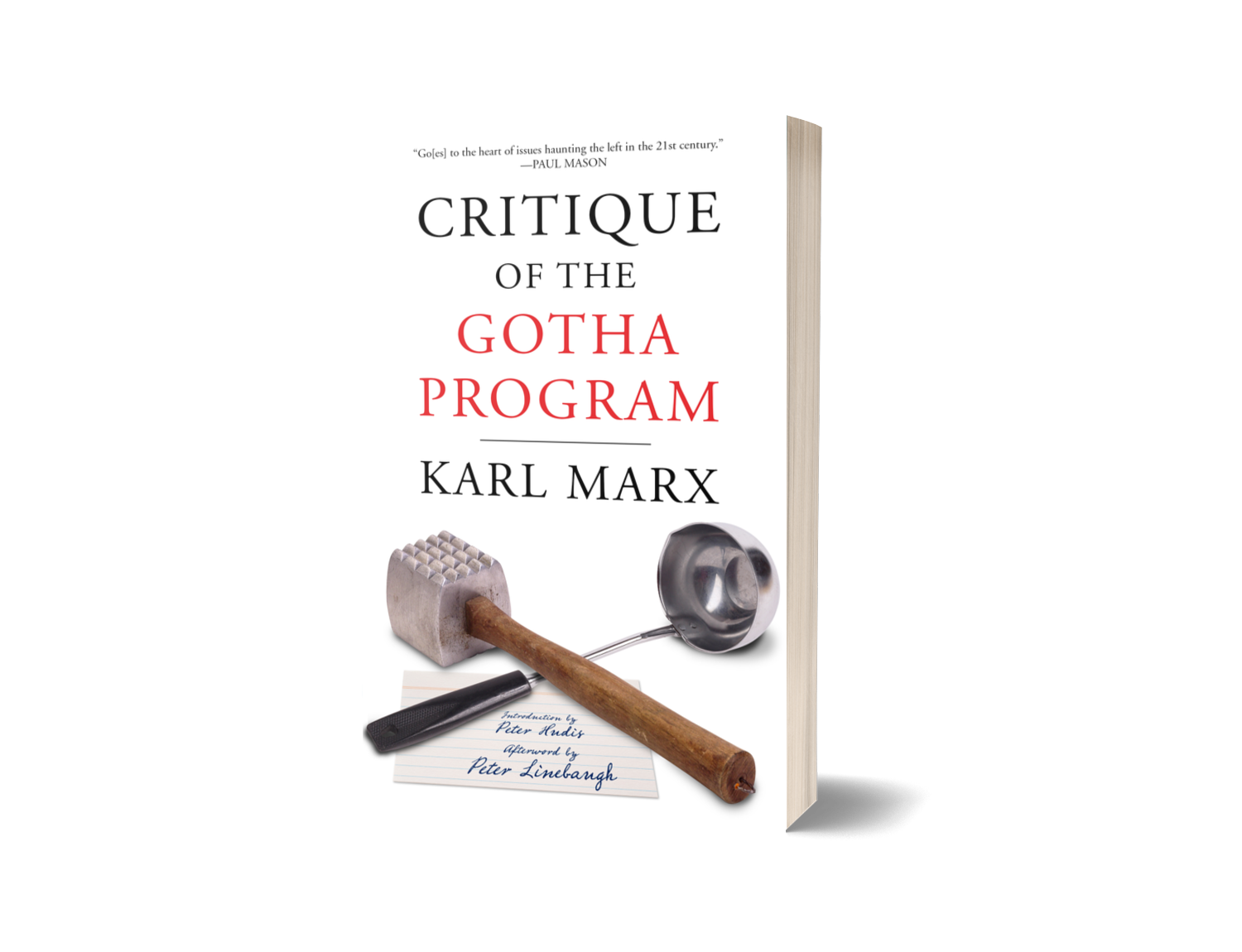By Jesse S. G. WozNIAK
Contemporary Sociology
West Virginia University
How we will finally transcend capitalism and establish a viable humanitarian alternative has been arguably the central conundrum ofleftist movements for the past century. Although Karl Marx was a masterful critic of capitalism, he rarely commented on exactly how itcan be abolished and what precisely would or should take its place. The Critique of the Gotha Program is the closest Marx comes to laying out a vision of the nature of communist society, and this oft-neglected work is once again available in English via the fine translation work of Kevin B. Anderson and Karl Ludenhoff.
Possibly the most valuable contribution of this volume, however, is Peter Hudis’s excellent introduction, offering both important context and analysis for understanding what Marx was attempting to achieve in the Critique. This was written in a context quite similar to our current age when many leading anticapitalists lack an adequate conception of the ultimate goals that give direction to anticapitalist action. Hudis argues that the reason most major attempts to break free from capitalism and establish a humanist alternative have failed is that they lack a full understanding of how to transcend the grip of capital.
Hudis builds a convincing case that Marx’s principal critique of capitalism centers on how time comes to dominate us, specifically through a need to meet socially necessary labor time, which is continually being redefined downward. As the failures of various forms of state socialism demonstrate, removing private ownership and instituting planned economies does not necessarily free us from being dominated by the time constraints imposed by hierarchical social production. Indeed, Hudis argues, one of the central problems of post-Marx Marxism has been confusing the superficial difference between planned and unplanned economies for the much more important difference of production relations and the time determination that governs them.
Building on the distinction between abstract labor as the substance of value and socially necessary labor time as the measure of value, Hudis argues that Marx’s work in the Critique pushes anticapitalists to agitate not for the redistribution of value butthe abolition of value as a precondition for uprooting the alienation of life endemic to capitalism. We will have transcended capitalism only when actual labor time reigns supreme over abstract labor time, as in communism an exchange of activities replaces an exchange of products, with the act of sharing based on use value supplanting the act of selling based on exchange value.
While there is obviously not sufficient ‘space to offer a full review of the Critique here, it is great to see an excellent new translation of the work that, we can hope, will-expose it to a wider audience, representing as it does an important but often overlooked component of Marx’s thought. He not only provides a number of correctives to the misunderstandings of certain laws of capitalism present in the Gotha Program, but also delivers his most detailed discussion of what communism will actually be like and how it might function in a practical sense.
Opening with the pointed assertion that labor is not the sole source of all wealth (nature being an obviously significant source of wealth), it is clear that Marx’s central motivation in this critique is to clarify important theoretical concepts necessary to guiding the larger communist project. Much of the critique centers on how “such hollow phrases can be twisted and turned as desired” (p. 52), lamenting how sloppy use of language can lead to significant misunderstandings, while explaining why this is not simply a pedantic argument about word choice but rather a necessary clarification of central concepts. A prime example is his dissection ofthe Gotha programs call to distribute the “undiminished proceeds of labor” to those whoproduce it, as there will of necessity be proceeds of labor needing to go to the collective good, supporting those who cannot work and all the various basics of social reproduction.
This focus ofMarx in the Critique on clarity and specificity oflanguage and terminology makes the thoughtful translation work by Anderson and Ludenhoff especially appreciated. The extensive footnotes on translation choices do a wonderful job of explaining why they have chosen to translate a particular term as they did, giving both the meaning in the original German and the typical context of its use in Marx’s other writings, as well as supplying other potential translations that would also suffice.
Although not laying out a full vision for how communism will operate — acknowledging that such a vision would be impossible because its actual nature will arise from the struggles of the marginalized —- Marx does offer his theory of a two-stage process in the transition to full communism. In the initial, lower stage, distribution and rights to consumption will necessarily still be unequal, as it is impossible to simply have a clean break from capitalism tonew social relations,
During this time, compensation would still likely be based in some measure on hours worked, although based directly on actual labor time, not abstracted socially necessary labor time. Moving to the higher phase of communism will occur as the quid pro quo of working time to compensation is gradually replaced by measuring our lives through free time, rather than time spent working.
Although not as thorough as the introduction, the afterword by Peter Linebaugh is an excellent short essay synthesizing major trends in Marx’s work and thought to help contextualize the insights of the Critique.
Especially useful is the way Linebaugh connects the Critique to contemporary anticapitalist struggles and how this meditation on the transition from capitalism to communism can inform the liberation movements of our time.
Altogether, this volume represents an excellent addition to any Marxist reading list. Those already familiar with the Critique will no doubt find value in Hudis’s and Linebaugh’s essays, and those who have not yet read the Critique will find this translation a very worthwhile read.






